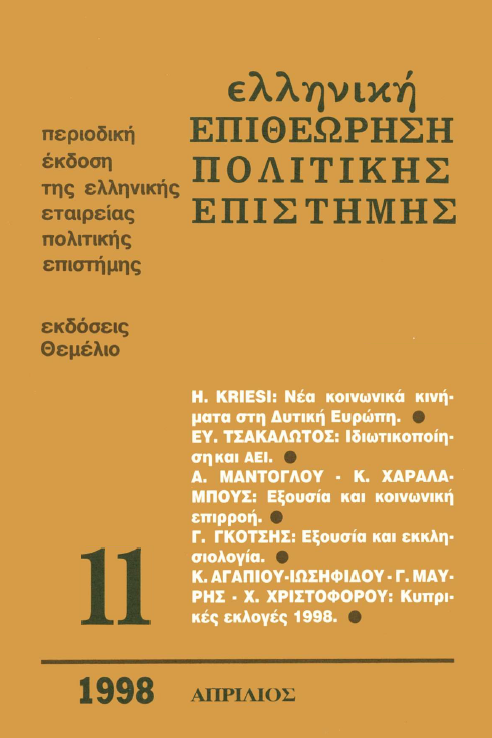Power and political ecclesiology according to the western medieval constitutional thought
Abstract
This article aims to interpret the medieval conception of power in relation to the temporal, spiritual and ontological structures of human action. It starts from the assumption that the political and institutional doctrines of medieval papacy presuppose the elaboration of a principle of political ecclesiology which can be elucidated via the interpretation of various medieval texts and treatises. Beginning from a critical reconstruction of both the secular and the ecclesiastic horizon of medieval political reasoning, this study subjects to detailed examination the medieval ethical and normative constitutional model with its major aspects: the theory of government, the relations of po liticai and juridical arguments, the contribution of roman law and its applications to the domain of political organisation, the nature of religious authority and the problem of legitimacy. Predominant emphasis is given upon those ideas that prepared the emergence of the modem state and facilitated the formation of an alternative approach in terms of covenant, consent and utility. The demonstration of the historical pervasiveness of such ideas in high and later medieval thought, the consequent rejection of papal claims to universal validity and the affirmation of a voluntarist interaction of the political subjects, can be considered as the essential conditions for the entry into the secular entire world-view of the Renaissance
Article Details
- How to Cite
-
Γκότσης Γ. Ν. (2017). Power and political ecclesiology according to the western medieval constitutional thought. Greek Political Science Review, 11, 99–135. https://doi.org/10.12681/hpsa.15115
- Issue
- Vol. 11 (1998)
- Section
- Articles

This work is licensed under a Creative Commons Attribution-NonCommercial-ShareAlike 4.0 International License.
Authors who publish with this journal agree to the following terms:
Authors retain copyright and grant the journal right of first publication with the work simultaneously licensed under a Creative Commons Attribution licence that allows others to share the work with an acknowledgement of the work's authorship and initial publication in this journal.
Authors are able to enter into separate, additional contractual arrangements for the non-exclusive distribution of the journal's published version of the work (e.g. post it to an institutional repository or publish it in a book), with an acknowledgement of its initial publication in this journal.
Authors are permitted and encouraged to post their work online (preferably in institutional repositories or on their website) prior to and during the submission process, as it can lead to productive exchanges, as well as earlier and greater citation of published work (See The Effect of Open Access).



